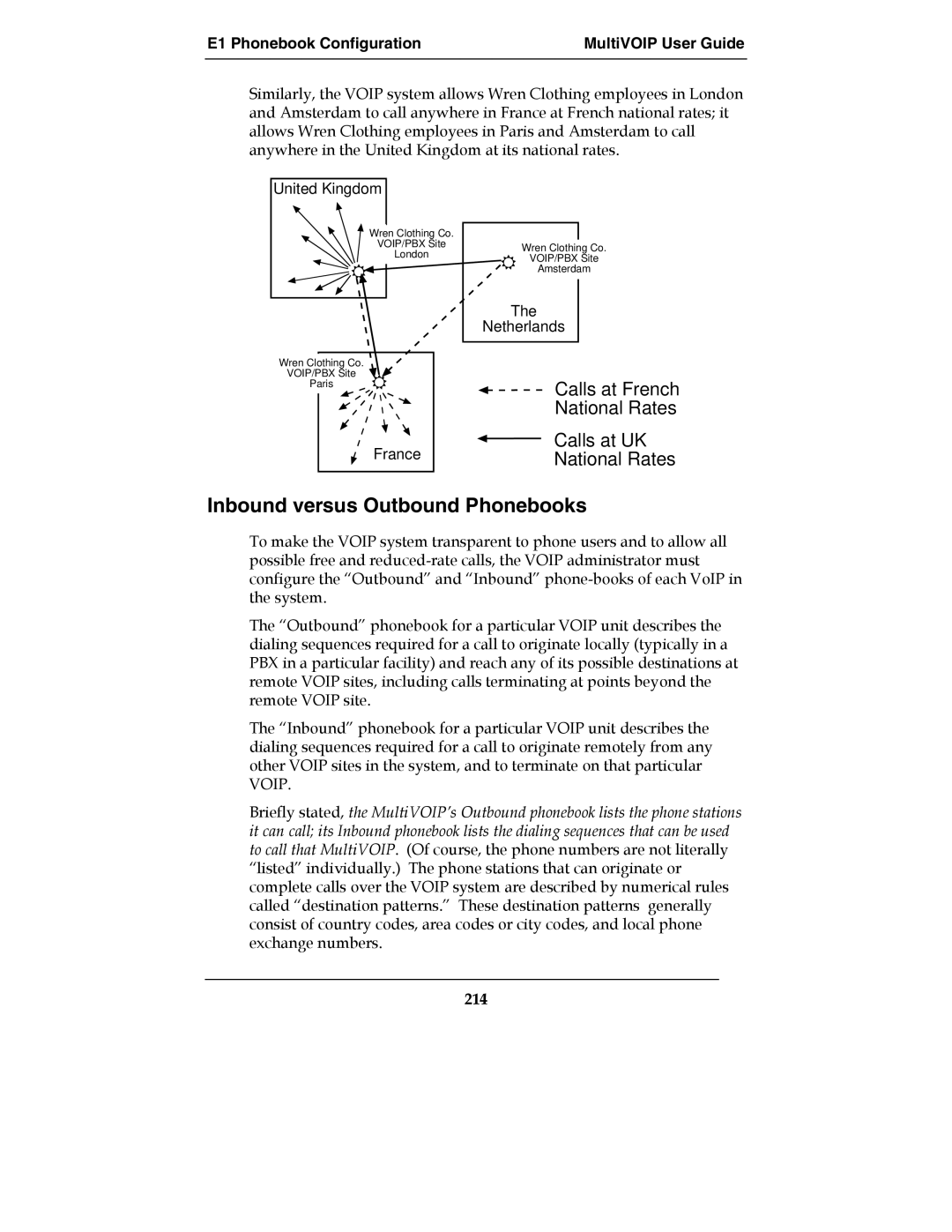
E1 Phonebook Configuration | MultiVOIP User Guide |
|
|
Similarly, the VOIP system allows Wren Clothing employees in London and Amsterdam to call anywhere in France at French national rates; it allows Wren Clothing employees in Paris and Amsterdam to call anywhere in the United Kingdom at its national rates.
United Kingdom
![]() Wren Clothing Co.
Wren Clothing Co.![]()
VOIP/PBX Site
London
![]() 5
5![]()
![]()
![]()
![]()
![]()
![]()
![]()
![]()
![]()
Wren Clothing Co.![]()
VOIP/PBX Site
Paris ![]() 5
5
France
Wren Clothing Co.![]()
5VOIP/PBX Site
![]()
![]() Amsterdam
Amsterdam
The
Netherlands
Calls at French
National Rates
Calls at UK
National Rates
Inbound versus Outbound Phonebooks
To make the VOIP system transparent to phone users and to allow all possible free and
The “Outbound” phonebook for a particular VOIP unit describes the dialing sequences required for a call to originate locally (typically in a PBX in a particular facility) and reach any of its possible destinations at remote VOIP sites, including calls terminating at points beyond the remote VOIP site.
The “Inbound” phonebook for a particular VOIP unit describes the dialing sequences required for a call to originate remotely from any other VOIP sites in the system, and to terminate on that particular VOIP.
Briefly stated, the MultiVOIP’s Outbound phonebook lists the phone stations it can call; its Inbound phonebook lists the dialing sequences that can be used to call that MultiVOIP. (Of course, the phone numbers are not literally “listed” individually.) The phone stations that can originate or complete calls over the VOIP system are described by numerical rules called “destination patterns.” These destination patterns generally consist of country codes, area codes or city codes, and local phone exchange numbers.
